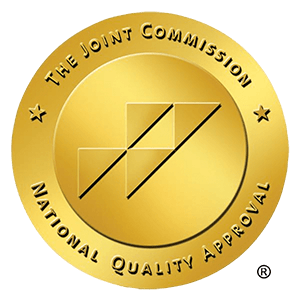In a world where mental health awareness is steadily on the rise, people are seeking effective ways to manage and improve their well-being. One such avenue gaining traction is group therapy. In this guide, we’ll delve into the myriad benefits of group therapy, exploring how it can be a powerful tool for personal growth and healing. From fostering a sense of belonging to providing a supportive environment for sharing experiences, group therapy offers unique advantages that traditional one-on-one therapy may not. Whether you’re grappling with anxiety, depression, addiction, or simply seeking personal development, navigating the landscape of group therapy can be transformative. Join us as we navigate the intricacies of group therapy, uncovering its potential to cultivate resilience, empathy, and meaningful connections. Get ready to embark on a journey towards self-discovery and emotional well-being.
Finding Your Tribe: The Importance of Belonging in Group Therapy
In the journey of self-discovery and healing, finding a sense of belonging can be a powerful catalyst. It’s this sense of belonging that often draws individuals to group therapy—a space where they can connect with others who share similar struggles, experiences, and aspirations. In this blog post, we delve into the significance of belonging in group therapy and how it fosters growth, support, and understanding.
The Power of Connection
Group therapy offers a unique environment where individuals can form connections with others who are on similar paths. This sense of camaraderie creates a supportive community where individuals feel understood and accepted. Whether it’s overcoming addiction, managing anxiety, or coping with trauma, knowing that you are not alone in your struggles can be incredibly empowering.
Validation and Normalization
One of the most profound aspects of group therapy is the validation and normalization of experiences. Sharing your story in a group setting allows you to see that your challenges are not unique to you. As you listen to others share their journeys, you realize that your feelings, thoughts, and experiences are valid and shared by others. This validation can be incredibly healing, as it helps to reduce feelings of isolation and shame.
A Safe Space for Vulnerability
Group therapy provides a safe space for vulnerability—an environment where individuals can open up about their emotions, fears, and insecurities without fear of judgment. This atmosphere of trust and acceptance encourages participants to be authentic and honest, fostering deeper connections and emotional growth.
Learning and Growth
Belonging to a group therapy setting provides ample opportunities for learning and personal growth. Through interactions with others, individuals gain new perspectives, insights, and coping strategies. They learn from each other’s successes and setbacks, gaining valuable tools for navigating their own challenges.
Empowerment Through Support
In group therapy, individuals not only receive support but also have the opportunity to offer support to others. This reciprocal relationship fosters a sense of empowerment, as individuals realize the impact they can have on others’ lives. Being able to offer guidance, encouragement, and empathy to fellow group members can be incredibly fulfilling and affirming.
Unlocking Self-Discovery: Exploring Identity and Personal Growth in Group Therapy Settings:
Group therapy offers a fertile ground for self-discovery, where individuals can explore their identity and experience profound personal growth. In this blog post, we delve into the transformative journey of self-discovery within the supportive environment of group therapy.
- Shared Reflection: Group therapy provides a mirror for individuals to examine their identity through the lens of others’ experiences. Sharing and reflecting on stories within the group fosters deeper self-awareness and understanding.
- Challenging Assumptions: Interacting with diverse perspectives in group therapy challenges individuals’ assumptions about themselves and the world around them. This process of questioning leads to breakthroughs in self-perception and personal growth.
- Embracing Vulnerability: Group therapy encourages individuals to embrace vulnerability by sharing their authentic selves with others. In this safe space, vulnerability becomes a catalyst for self-discovery and emotional healing.
- Feedback and Validation: Receiving feedback and validation from peers in group therapy helps individuals gain clarity about their strengths, weaknesses, and areas for growth. This supportive environment fosters self-acceptance and empowers individuals to embrace their unique identity.
In the nurturing environment of group therapy, individuals embark on a journey of self-discovery that leads to profound personal growth and transformation.
Building Resilience Together: How Group Therapy Helps Individuals Overcome Adversity
Life is full of challenges, and at times, it can feel overwhelming to face them alone. That’s where group therapy comes in—a powerful tool for building resilience and overcoming adversity. In this blog post, we explore how group therapy fosters resilience by providing a supportive community, teaching coping skills, and offering opportunities for shared growth.
Creating a Supportive Community
Group therapy offers a unique environment where individuals facing similar adversities can come together to support one another. In this community of shared experiences, participants find comfort in knowing that they are not alone in their struggles. Whether it’s coping with trauma, managing chronic illness, or navigating life transitions, the support of peers who understand can make all the difference.
Learning Coping Skills
In group therapy, individuals learn valuable coping skills that help them navigate life’s challenges more effectively. Through guided exercises, discussions, and role-playing, participants develop strategies for managing stress, regulating emotions, and problem-solving. These practical skills empower individuals to face adversity with resilience and confidence.
Sharing Experiences
One of the most powerful aspects of group therapy is the opportunity to share experiences with others who have faced similar challenges. By listening to each other’s stories, participants gain new perspectives and insights into their own struggles. This shared understanding fosters empathy and compassion, creating a sense of camaraderie and mutual support.
Building Resilience Through Feedback
In group therapy, individuals receive feedback and validation from their peers, which can be instrumental in building resilience. Whether it’s offering encouragement, sharing coping strategies, or providing constructive criticism, the input of group members helps individuals feel supported and empowered to overcome obstacles.
Celebrating Progress Together
In group therapy, progress is celebrated not only as an individual achievement but as a collective victory. As participants support each other through setbacks and celebrate successes, they reinforce the belief that resilience is possible, even in the face of adversity. This collective encouragement inspires hope and motivates individuals to continue their journey toward healing and growth.
Conclusion
At Core Recovery, we recognize the profound advantages that group therapy offers individuals on their journey to healing and growth. Through our comprehensive guide, we have illuminated the multifaceted benefits of group therapy, ranging from fostering a sense of belonging to providing diverse perspectives and support networks. Our commitment to guiding clients through their therapeutic journey underscores our dedication to facilitating transformative experiences and empowering individuals to navigate life’s challenges with resilience and strength. Contact us at 602-926-7729 in Phoenix, Arizona, USA, to embark on a journey towards holistic well-being with our compassionate and experienced team.





 In CA By O360®
In CA By O360®